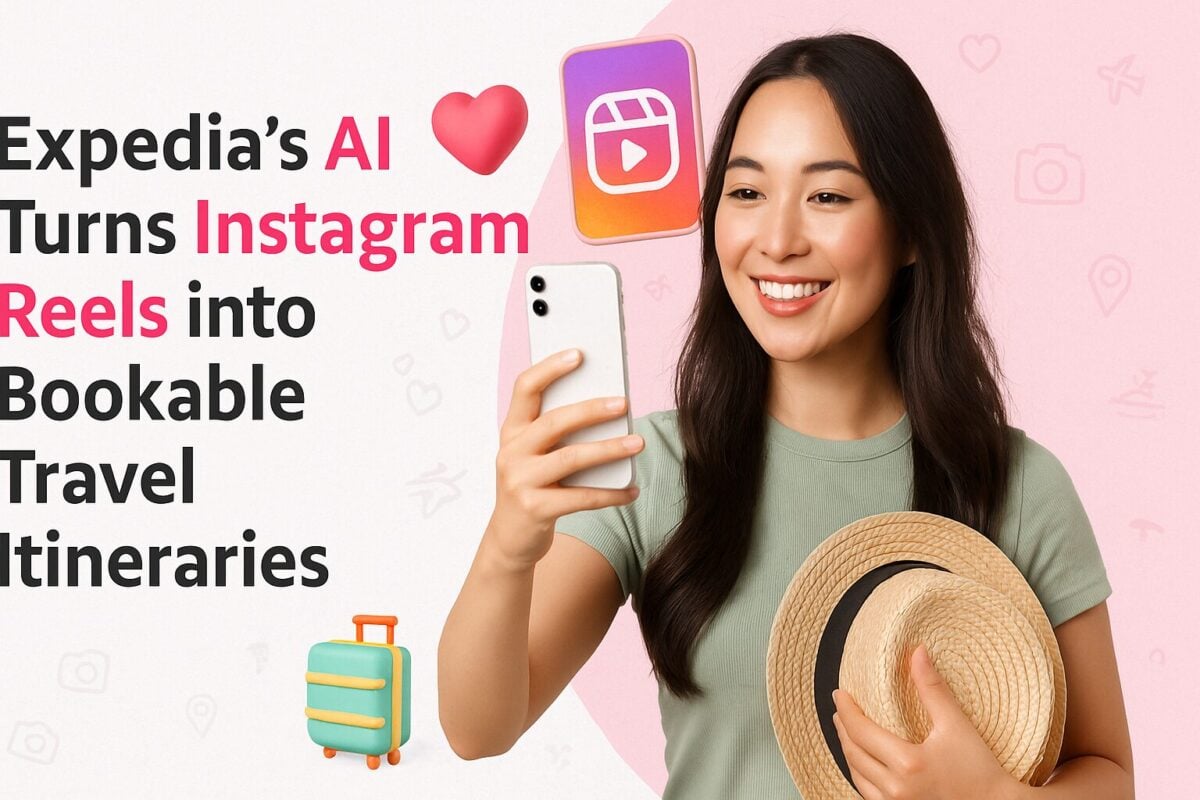Kayak and Expedia's AI Travel Agents: Turning Social Posts into Itineraries
Discover how Kayak and Expedia are revolutionizing travel planning with AI agents that craft itineraries from social media posts.

The travel industry is undergoing a significant transformation with the advent of AI-powered travel agents. These intelligent systems are not just changing how we plan trips but are setting new standards for personalization and efficiency. In this article, we'll delve into the workings of AI travel agents, their benefits, and the future they promise.
Understanding AI-Powered Travel Agents
AI travel agents are sophisticated systems that leverage artificial intelligence to assist with travel planning. Unlike traditional travel agencies that rely on human expertise, AI agents use data analysis and machine learning to offer tailored recommendations. Platforms like Kayak and Expedia have embraced this technology, allowing users to search, compare, and book travel options more efficiently.
How AI Agents Differ from Traditional Agencies
Traditional agencies often provide a one-size-fits-all approach, whereas AI agents offer personalized experiences. By analyzing user preferences and behavior, AI can suggest unique destinations and activities, enhancing the travel experience. Additionally, AI's 24/7 availability and rapid response times make them more convenient than human agents.
The Role of Social Media in AI Travel Planning
Social media has become a treasure trove of user preferences, which AI agents tap into to create personalized itineraries. Platforms like Instagram and Spotify provide insights into users' interests, from favorite cuisines to music genres, helping AI agents make informed recommendations.
From Social Media Insights to Itineraries
AI agents analyze social media data to identify patterns and preferences. For instance, if a user frequently posts about hiking, the AI might suggest national parks or trekking destinations. This data is then used to craft detailed itineraries, ensuring a travel experience aligned with the user's tastes.
For more on how AI is advancing research capabilities, visit OpenAI's guide.
Key Benefits of AI-Driven Travel Planning
The integration of AI into travel planning offers several advantages, making it a preferred choice for many travelers.
Personalization
AI excels at tailoring experiences based on user data. Whether it's a preference for adventure or relaxation, AI ensures that every aspect of the trip is customized. For example, a user who likes fine dining might receive recommendations for top-rated restaurants at their destination.
Efficiency
Planning a trip traditionally involves hours of research. AI streamlines this process by providing instant recommendations, from flights to accommodations, saving users significant time and effort.
Innovation
The travel industry is experiencing a paradigm shift with AI. Innovations like virtual travel assistants and real-time language translation are enhancing the travel experience, making exploration more accessible and enjoyable.
How AI Travel Agents Work
The functionality of AI travel agents can be broken down into a few key steps:
- Data Collection: Gathering user data from various sources, including social media, search history, and previous bookings.
- Analysis: Using machine learning algorithms to analyze the collected data and identify preferences.
- Recommendation: Suggesting destinations, activities, and services based on the analysis.
- Optimization: Continuously refining recommendations based on user feedback.
Example Code: Text Analysis with AI
Here's a simple example of how AI can analyze text to identify travel preferences:
import requests
def analyze_text(text):
api_key = "your_api_key"
url = f"https://api.example.com/analyze?text={text}&key={api_key}"
response = requests.get(url)
return response.json()
Example usage
preferences = analyze_text("I love hiking and trying new cuisines.")
print(preferences) # Output: {'interests': ['hiking', 'culinary']}
This script uses an AI API to analyze text and extract interests, which can then be used to suggest relevant travel options.
The Future of AI in Travel Planning
As AI technology advances, we can expect even more sophisticated travel agents. Future developments might include:
- Multimodal AI: Combining text, image, and voice inputs for a more comprehensive understanding of user preferences.
- Ethical Considerations: Ensuring that AI systems respect user privacy and avoid biases in recommendations.
For insights into the broader AI revolution, visit ChatGPT Essentials.
Implementing AI Travel Agents for Your Next Trip
To make the most of AI travel agents, consider the following best practices:
- Provide Detailed Input: Share your preferences and interests to help the AI create a personalized itinerary.
- Leverage Advanced Features: Use features like real-time language translation and destination guides offered by AI platforms.
- Stay Updated: Regularly check for new features and updates from your AI travel agent.
Example Code: Integrating AI into a Travel App
Here's how you might integrate an AI into a travel app:
const aiTravelAgent = {
suggestDestination: async (preferences) => {
const response = await fetch(
`https://api.example.com/suggest?preferences=${preferences}`
)
return await response.json()
},
}
// Usage example
const preferences = { interests: ["beach", "history"] }
const suggestions = await aiTravelAgent.suggestDestination(preferences)
console.log(suggestions) // Output: ['Hawaii', 'Rome']
This code snippet demonstrates how an AI can be integrated into a travel app to provide destination suggestions based on user preferences.
Conclusion
AI-powered travel agents are revolutionizing the travel industry by offering personalized, efficient, and innovative solutions. As technology continues to evolve, the future of travel planning looks promising, with AI playing a central role in enhancing our exploration of the world. Whether you're a seasoned traveler or planning your first trip, AI travel agents are here to make your journey unforgettable.
For a deeper dive into using AI apps, check out Using ChatGPT App.